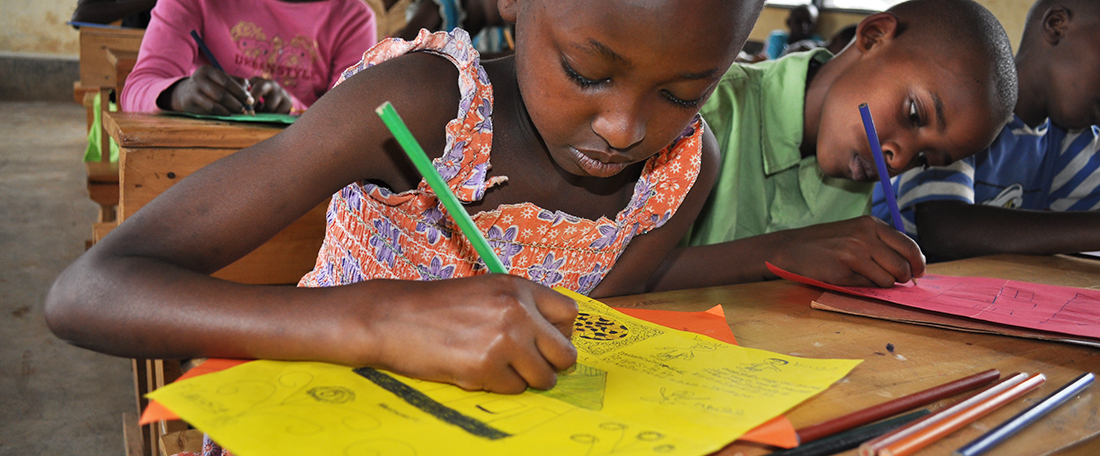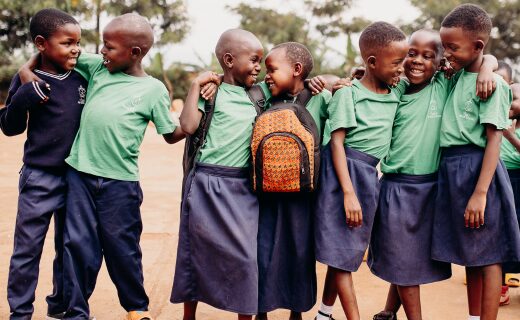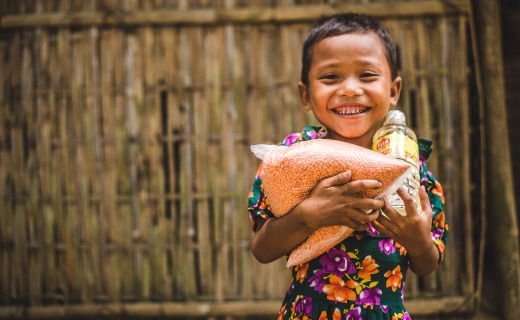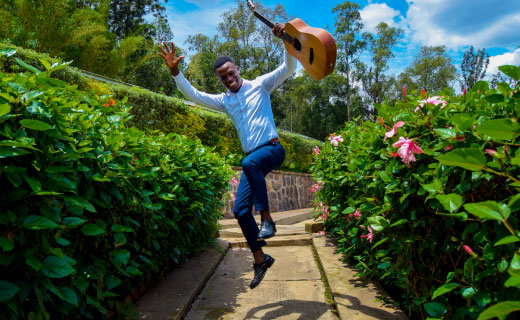Rwanda
Capital City: Kigali
Population: 12 million
Life expectancy: Male: 62.6 years, Female: 66.5 years
Population with improved drinking water: Urban: 86.6%, Rural: 71.9%
Population with improved sanitation: 61.6%
Percentage of children underweight: 9.6%
Literacy Rate: Male: 73.2%, Female: 68%
Child Labour: 28%
Religion: Protestant 49.5% (includes Adventist 11.8% and other Protestant 37.7%), Roman Catholic 43.7%, Muslim 2%, other 0.9% (includes Jehovah's Witness), none 2.5%, unspecified 1.3% (2012)
Percentage living below the poverty line: 39.1%
A little bit of history
Rwanda, affectionately known as the ‘land of a thousand hills’, was once known for its breathtaking scenery and endangered gorilla population. More recently it was the scene of modern history’s worst genocide. In 1962 Rwanda gained independence from Belgium and the Hutu majority population overthrew the ruling Tutsi King.
After years of unrest, on the 10 April 1994 the genocide began with 100 days of terrifying and systematic slaughter. Every day, almost 10,000 people were killed and many Rwandans fled across the border to escape the violence. The genocide left huge scars on the country, especially the children: 50 per cent of the population left were children, more than 800,000 were orphaned and 20,000 in child-headed households.
Today, Rwanda has vowed to learn from the past and has developed a system of good governance, zero tolerance for corruption and promotion of gender equality with 56% of all parliamentarians being women, the highest proportion of female representation in the world.
How the country makes a living
Following the genocide, Rwanda’s economic progress completely stalled. However, the government has put a huge amount of effort into turning things around. Although 90% of the population still make a living from the land, Rwanda has its own 'Economic Development and Poverty Reduction Strategy’ to transform its agricultural-based economy into a knowledge-based hub for business and information technology by 2020. The country recently joined both the East African Community and the Commonwealth of Nations and has been credited two years in row by the World Bank for the positive way they conduct business.
Challenges faced by children
Today the children of the 1994 genocide are themselves parents, many of whom still carry the scars of the past. Rwanda remains one of the poorest countries in the world with 39.1% of the population living below the poverty line and over half the population under the age of 18. This places a huge strain on the country and whilst primary education is free, many parents can’t afford the uniforms and books their children need to attend school.
Compassion in Rwanda
Compassion began its ministry in Rwanda in 1980, when the Child Sponsorship Programme was started. This was followed by the Child Survival Programme in 2010. Currently, more than 102,562 children participate in 418 child development centres.
What sponsored children learn in rwanda
Project days in Rwanda are generally held on Saturdays. During a typical project day, sponsored children will learn topics such as …
9.00am Prayer, devotion time and breakfast. Children are given porridge in the morning before starting the first lesson.
10.30am Break time. Children can play in a safe environment and develop friendships.
11.00am Social lessons. From conflict resolution to developing healthy self-esteem and a Godly character, children who often come from challenging home environments are taught social and personal skills.
12.00pm Lunch and social time. The children are given a full meal for lunch, which typically consists of rice, posho (a common East African dish made with cornmeal) or Irish potatoes with beans and green vegetables.
13.00pm Health lessons. Children are taught practical health and hygiene tips. Example topics include how to prevent malaria, HIV, and the prevention, recognition and response to child abuse.
14.00pm Letter writing and career planning. Older children work with project staff to identify their strengths and interests, setting realistic goals for their future.
In addition to the standard topics on the Compassion curriculum, children in Rwanda are also introduced to Rwandan national values such as self-identity, loving the nation, unity, reconciliation and striving toward self-reliance. Many projects teach the Rwandan cultural dance as a way of maintaining and owning the Rwandan culture.
When they reach the age of 12, young people are involved in skills training, such as computer training, carpentry, motor vehicle repair, dressmaking, cooking, hair dressing, driving and life skills.





